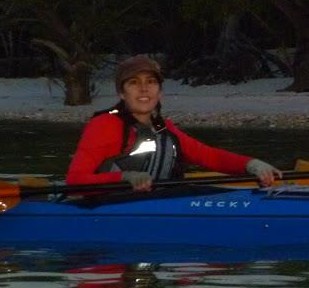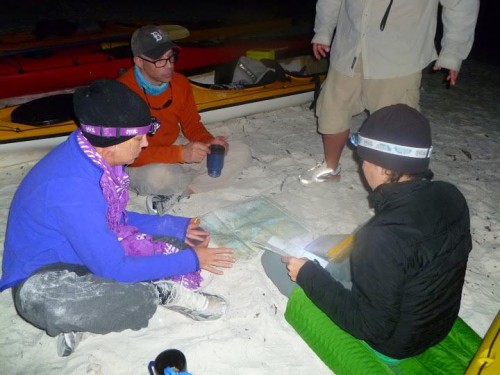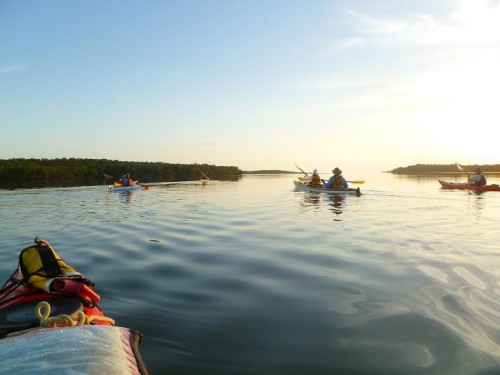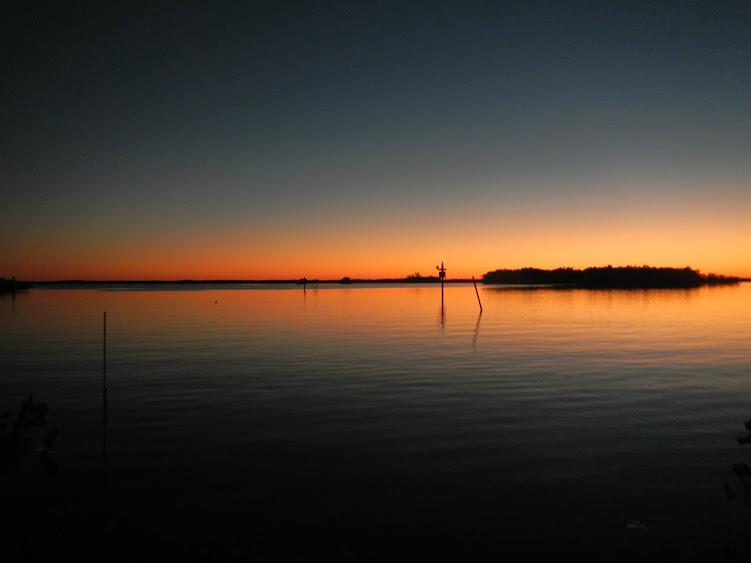The adults who enroll on our Outward Bound Adult courses are unequivocally brave. They have taken a precious week of vacation to go spend time in the wilderness with a group of complete strangers. They have said goodbye to their comfortable bed. They have left behind their electronic devices – and – even harder – their kids, spouses, and families. They are clearly committed to personal growth, life lessons and broadening horizons. On an Outward Bound Adults course, the participants often come from a variety of backgrounds, possess diverse life experiences and have unique personal goals for the course. And yet, despite all of their differences, the group learns to work together; to support one another; to move as a well-oiled machine. Today’s course memory comes from Kim Young, our Director of Digital Marketing. When Kim had the opportunity to embark on a Florida Ten Thousand Islands kayaking expedition, she jumped on it. And, while Kim certainly expected to be challenged in various ways, she perhaps did not expect to be faced with a conundrum about respect versus compassion. Below, Kim tells her story…

Kim Young, Director of Digital Marketing
“The When of Compassion”
by Kim Young
On my course, one thing that stands out is learning about compassion. We weren’t necessarily learning to be compassionate – as adults, many of whom were parents, most of us had already learned the importance of compassion. Rather, we were learning about when to be compassionate. My Outward Bound expedition caused me to look at compassion in a new, and perhaps broader way.
On our final expedition, our mission was to find our way back to base camp using an unmarked map and our own acquired skills to shoot bearings on a compass, find routes and to plan for the tide schedule and the weather. As with any Outward Bound course, we had students with varying levels of physical and mental fitness as well as different course experiences leading up to the final expedition. Some students were healthy on course; others had battled colds or other aches and pains; and some were dealing with more personal issues around their course experience, being away from friends and family, taking a look at themselves, etc.

Late night navigation planning for the final expedition.
As we sought to understand the map and interpret our bearings, several of the students, at varying times throughout the day, struggled to keep up with the fast pace, lack of breaks and the uncertainty. I saw people struggling, and I observed others questioning if those struggling needed help. One student in particular was getting winded and tired while paddling. He did not ask for help – nor did he indicate that he was interested in help when asked. I tried to put myself in his shoes – and decided that if I were that person, and I had not asked for help, I wouldn’t want it. So, I paddled on..

Sea kayaking though Florida Ten Thousand Islands.
Eventually, my crewmates convinced the struggling student that they would rope his kayak to theirs, and they would paddle and pull his boat, giving him a chance to rest.
In the end, the student struggling was very grateful for the help and intervention.
Even though the struggling student did not ask for help, it turned out to be a good call. He did, in fact, need the help. Maybe he needed others to show him the compassion that he was unable to show himself and allow himself to ask for help. He needed his crewmates to look out for him. It taught me that the tricky part isn’t practicing compassion, but about knowing when to. The whole experience reinforced for me that if you are open to it, life’s experiences can be an ongoing opportunity to change your perspective, learn something new and grow.

One of the Ten Thousand Islands, Sunset Island at sunset.
***
Kim’s story is an excellent example of Outward Bound values hard at work. Both compassion and inclusion are embedded in the Outward Bound philosophy – so it is perhaps not surprising that Kim’s most salient memories focus on both. As she observed her peers reaching out to help her crewmate, she was watching the Outward Bound way – to “demonstrate concern and act with a spirit of respect and generosity in service to others.” Kim’s story also underlines the Outward Bound commitment to service, defined as “demonstrating social and environmental responsibility; actively engaging in service to others.” There is no doubt that Kim’s adult crew members were serving one another in a spirit of social responsibility – whether that meant tying a boat to their own – or giving an adult student the option to make their own choices.
Outward Bound Adult courses are an excellent way to step out of the daily grind for a fresh perspective, a break from the ordinary, and an opportunity to re-assess, re-boot and renew. For information on adult expeditions, go to: http://www.outwardbound.org/classic/adult-expeditions/ or call 866.467.7651 to speak with an Admissions Advisor today.
OTHER POSTS YOU MAY LIKE
Read More
Read More
Read More




